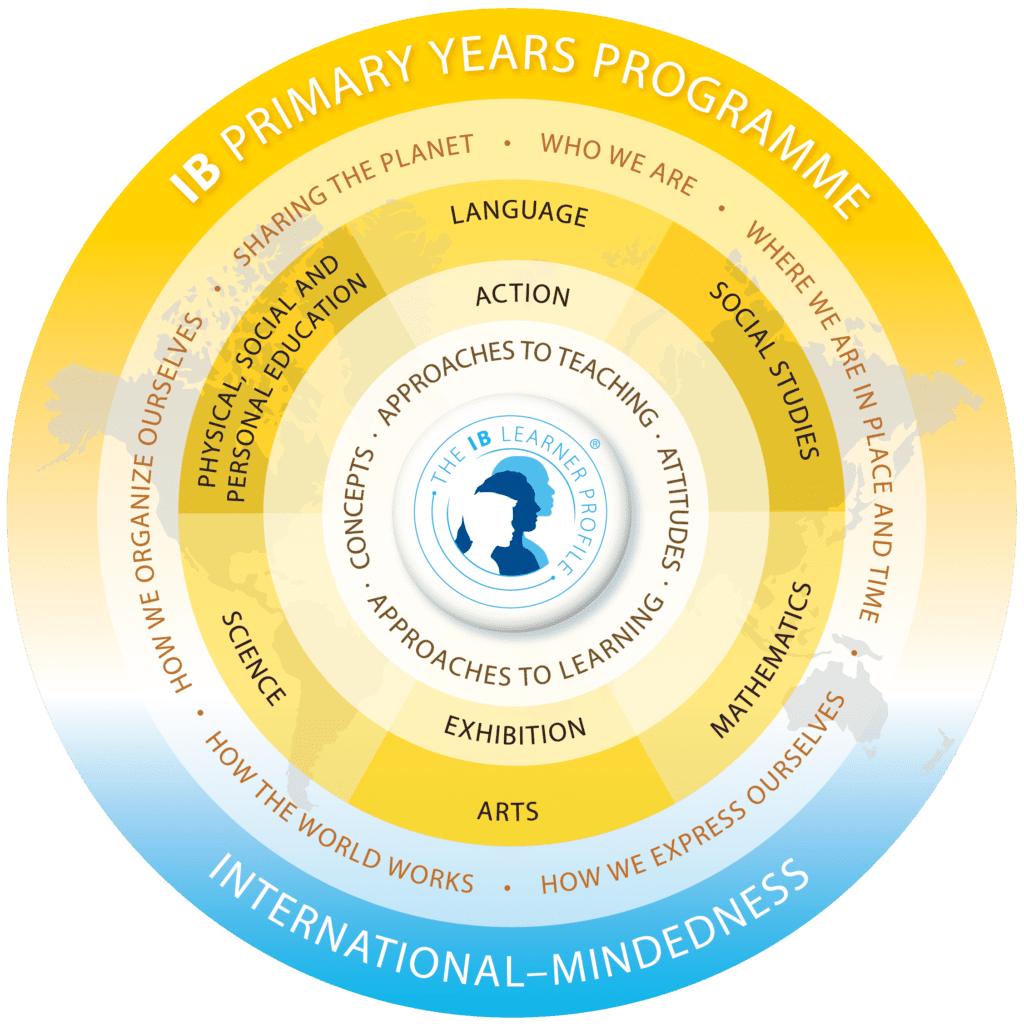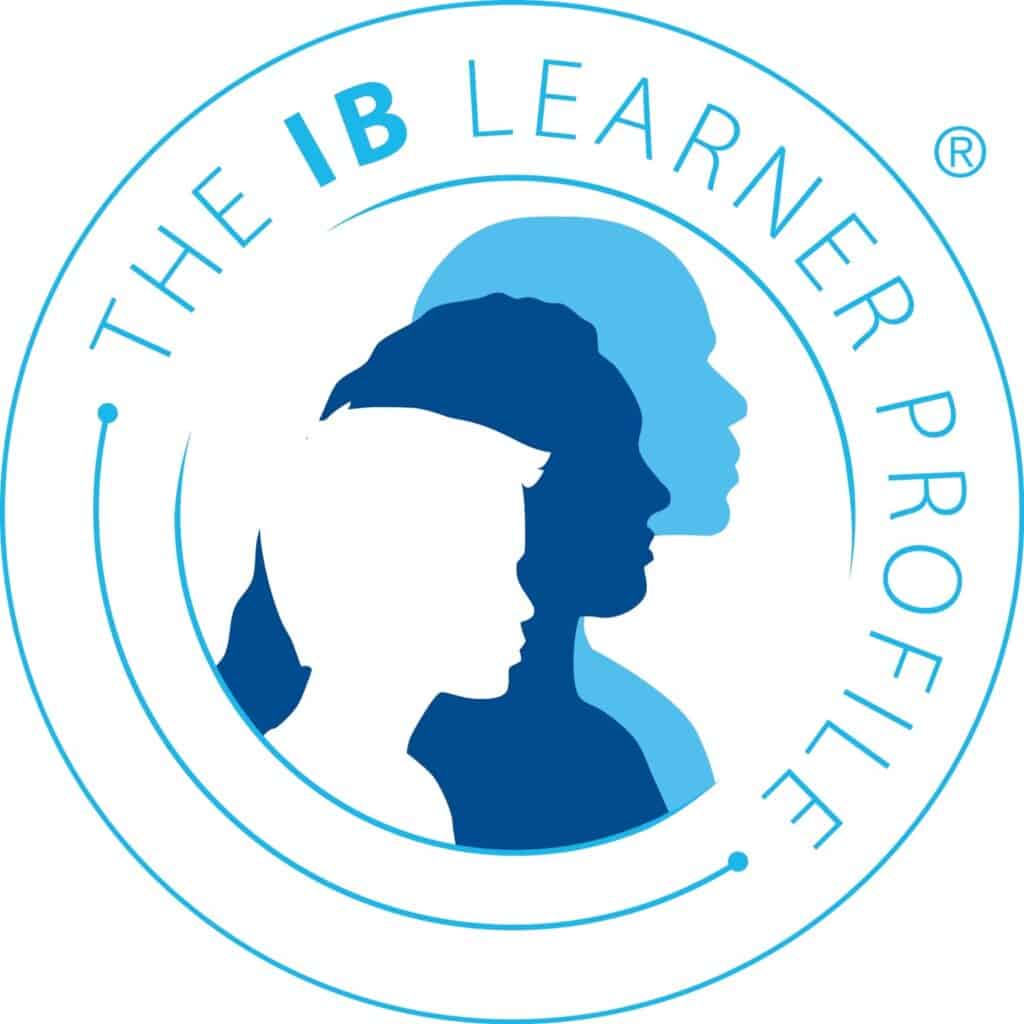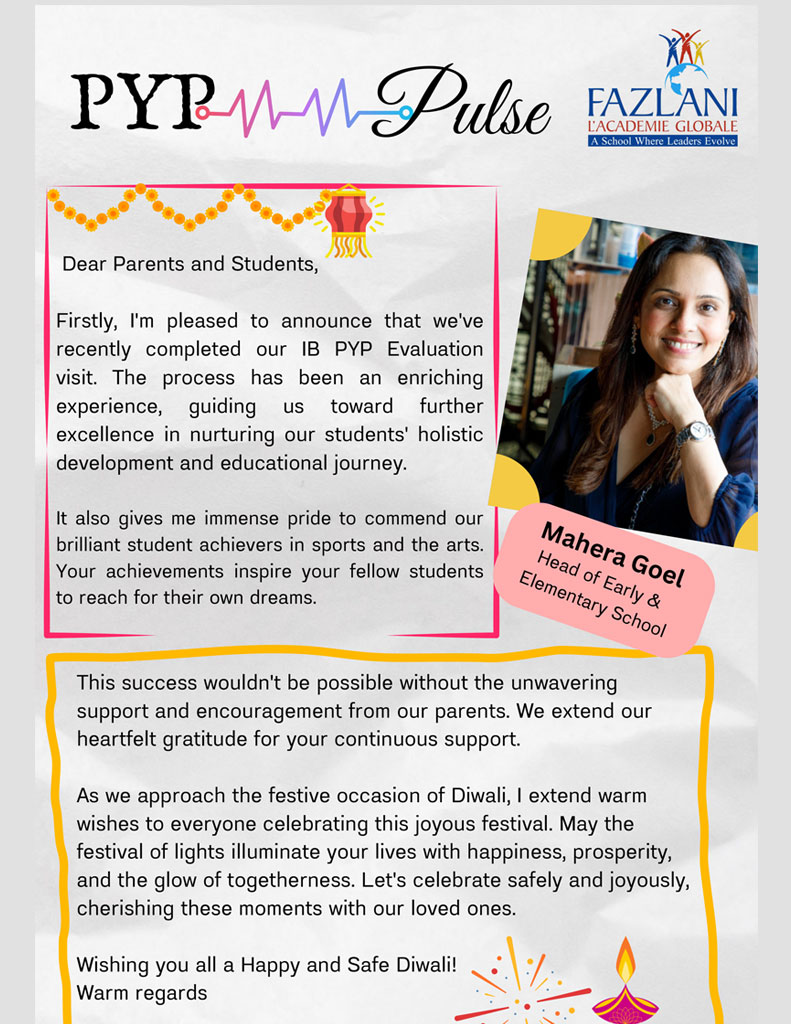the IB primary years programme
- About Us
- PYP
THE IB YEARS PRIMARY PROGRAMME - Nursery to Grade 5
Fazlani L’Academie Globale offers the IBO’s Primary Years Programme since 2006 and is an IB Authorised World School.
IB mission
The International Baccalaureate aims to develop inquiring, knowledgeable, and caring young people who help to create a better and more peaceful world through intercultural understanding and respect.
To this end, the organization works with schools, governments, and international organizations to develop challenging programmes of international education and rigorous assessment.
These programmes encourage students across the world to become active, compassionate, and lifelong learners who understand that other people, with their differences, can also be right.
The International Baccalaureate Primary Years Programme (IB PYP) is a transdisciplinary programme for children from 3 to 12 years of age. The PYP encourages children to take responsibility for their learning and build their skills to become lifelong learners.
At Fazlani L’Academie Global, your child develops a deep understanding of essential concepts, researches knowledge which has local and global significance. The student acquires and practices a range of critical skills, is encouraged to develop positive attitudes towards learning, the environment, and other people and has the opportunity for involvement in responsible action and service to the community.
Our inquiry-driven approach fosters curiosity, a love of life-long learning and promotes children’s social, emotional, and personal growth.
The PYP curriculum model comprises six academic areas surrounded by the learner profile, key concepts, transdisciplinary themes, approaches to learning and teaching, exhibition, and action. Together, these elements build an internationally-minded curriculum. Constructivism, concept-based, and inquiry learning is integrated into learning and teaching.

The learner profile—The IB mission statement in action
- The IB learner profile represents a broad range of human capacities and responsibilities that encompass intellectual, personal, emotional and social growth.
- Developing and demonstrating the attributes of the learner profile provides an essential foundation for international-mindedness.
- The learner profile supports students in taking action for positive change.

The learner profile supports students in developing international-mindedness and in taking action for positive change. Exercising their agency, students take ownership of their learning, express their ideas and opinions, and reflect on their development of the learner profile attributes.
Students have a range of opportunities to develop, demonstrate and reinforce attributes of the learner profile in the daily life of the learning community. For example, these opportunities arise:
- as part of the school curriculum—through the transdisciplinary units of inquiry and subject-specific investigations
- through interactions in a variety of learning spaces—in the library, music room, and makerspace through social interactions—break/recess and lunch, sport and interest groups, after-school activities during field trips—museum visits, interschool sports events, camps
- through school events—assemblies, drama productions, sports days
- at home and in the broader community—interactions with family, friends, local businesses, sports clubs, and interest groups.
The IB learner profile is the IB mission statement translated into a set of learning outcomes. It is a set of ideals we use as inspiration, motivation and focus for our teaching and work.
Inquirers: They develop their natural curiosity. They acquire the skills necessary to conduct inquiry and research and show independence in learning. They actively enjoy learning, and this love of learning will be sustained throughout their lives.
Knowledgeable: They explore concepts, ideas and issues that have local and global significance. In so doing, they acquire in-depth knowledge and develop understanding across a broad and balanced range of disciplines.
Thinkers: They exercise initiative in applying thinking skills critically and creatively to recognize and approach complex problems, and make reasoned, ethical decisions.
Communicators: They understand and express ideas and information confidently and creatively in more than one language and in a variety of modes of communication. They work effectively and willingly in collaboration with others.
Principled: They act with integrity and honesty, with a strong sense of fairness, justice and respect for the dignity of the individual, groups and communities. They take responsibility for their own actions and the consequences that accompany them.
Open-minded: They understand and appreciate their own cultures and personal histories, and are open to the perspectives, values and traditions of other individuals and communities. They are accustomed to seeking and evaluating a range of points of view, and are willing to grow from the experience.
Caring: They show empathy, compassion and respect towards the needs and feelings of others. They have a personal commitment to service, and act to make a positive difference to the lives of others and to the environment.
Risk-takers: They approach unfamiliar situations and uncertainty with courage and forethought, and have the independence of spirit to explore new roles, ideas and strategies. They are brave and articulate in defending their beliefs.
Balanced: They understand the importance of intellectual, physical and emotional balance to achieve personal well-being for themselves and others.
Reflective: They give thoughtful consideration to their own learning and experience. They are able to assess and understand their strengths and limitations in order to support their learning and personal development.



The transdisciplinary themes mark the starting point of student inquiries. Students explore related central ideas and assimilate knowledge within the context of each transdisciplinary theme. These themes engage the learning community in productive dialogues and ongoing collaboration to build an understanding of themselves, their wider community, and the world. The six transdisciplinary themes guide what students will inquire into (see figure).
They:
- encapsulate our shared commonalities
- indicate the complexity and the connectedness of the human condition globally
- invite students to engage in dialogues about real issues in the world
- allow for authentic embeddedness of subject areas
- contribute to the uniqueness of the PYP.
The six transdisciplinary themes:
- Who We Are: An inquiry into the nature of the self; beliefs and values; personal, physical, mental, social and spiritual health; human relationships including families, friends, communities, and cultures; rights and responsibilities; what it means to be human.
- Where We Are in Place and Time: An inquiry into orientation in place and time; personal histories; homes and journeys; the discoveries, explorations and migrations of humankind; the relationships between and the interconnectedness of individuals and civilizations, from local and global perspectives.
- How We Express Ourselves: An inquiry into the ways in which we discover and express ideas, feelings, nature, culture, beliefs and values; the ways in which we reflect on, extend and enjoy our creativity; our appreciation of the aesthetic
- How the World Works: An inquiry into the natural world and its laws; the interaction between the natural world (physical and biological) and human societies; how humans use their understanding of scientific principles; the impact of scientific and technological advances on society and on the environment.
- How We Organize Ourselves: An inquiry into the interconnectedness of human-made systems and communities; the structure and function of organizations; societal decision-making; economic activities and their impact on humankind and the environment.
- Sharing the Planet: An inquiry into rights and responsibilities in the struggle to share finite resources with other people and with other living things; communities and the relationships within and between them; access to equal opportunities; peace and conflict resolution
The seven key concepts in the PYP offer a lens to explore big ideas within the units of inquiry and across all subjects.
The seven PYP key concepts are:
Form – Function – Causation – Change – Connection – Perspective – Responsibility
The alignment of the key concepts is illustrated in the Programme of Inquiry, which is the matrix of each transdisciplinary theme taught at each grade level. Each IB PYP school has a Programme of Inquiry unique to their campus.


Agency is the use of one’s own will and initiative to take responsibility and ownership of learning. It acknowledges the rights and responsibilities of the individual, supporting voice, choice, and ownership for everyone in the learning community. Students with agency influence and direct their learning. Through a personal initiative, students express interest and wonder, make choices, and are aware of their learning goals. They are actively engaged and monitor and adjust their learning as needed. Students offer feedback to others and consult on decisions that affect them. In school, students take responsibility for their learning and collaborate with teachers and other students to plan, present, and assess learning needs.

The learner profile—The IB mission statement in action
Teachers support agency by:
- personalizing learning
- creating learning environments to support social, physical and emotional well-being
- creating a culture of respect
- collaborating and co-constructing learning and learning goals.
At the core of agency lies authentic, meaningful, mindful, responsible, and responsive action. The action could be:
- a change in attitude
- a consideration or plan for action in the future
- a demonstration of responsibility, or respect for self, others and the environment
- a commitment to leading or participating in a youth advocacy group
- engagement in school decision-making or an expression of support in the community or local and global decision-making.
The action might come in the form of participation, advocacy, social justice, social entrepreneurship, or life choices. Students take personal and collective action as part of their learning, both within and beyond school (in response to local and global challenges and opportunities).




